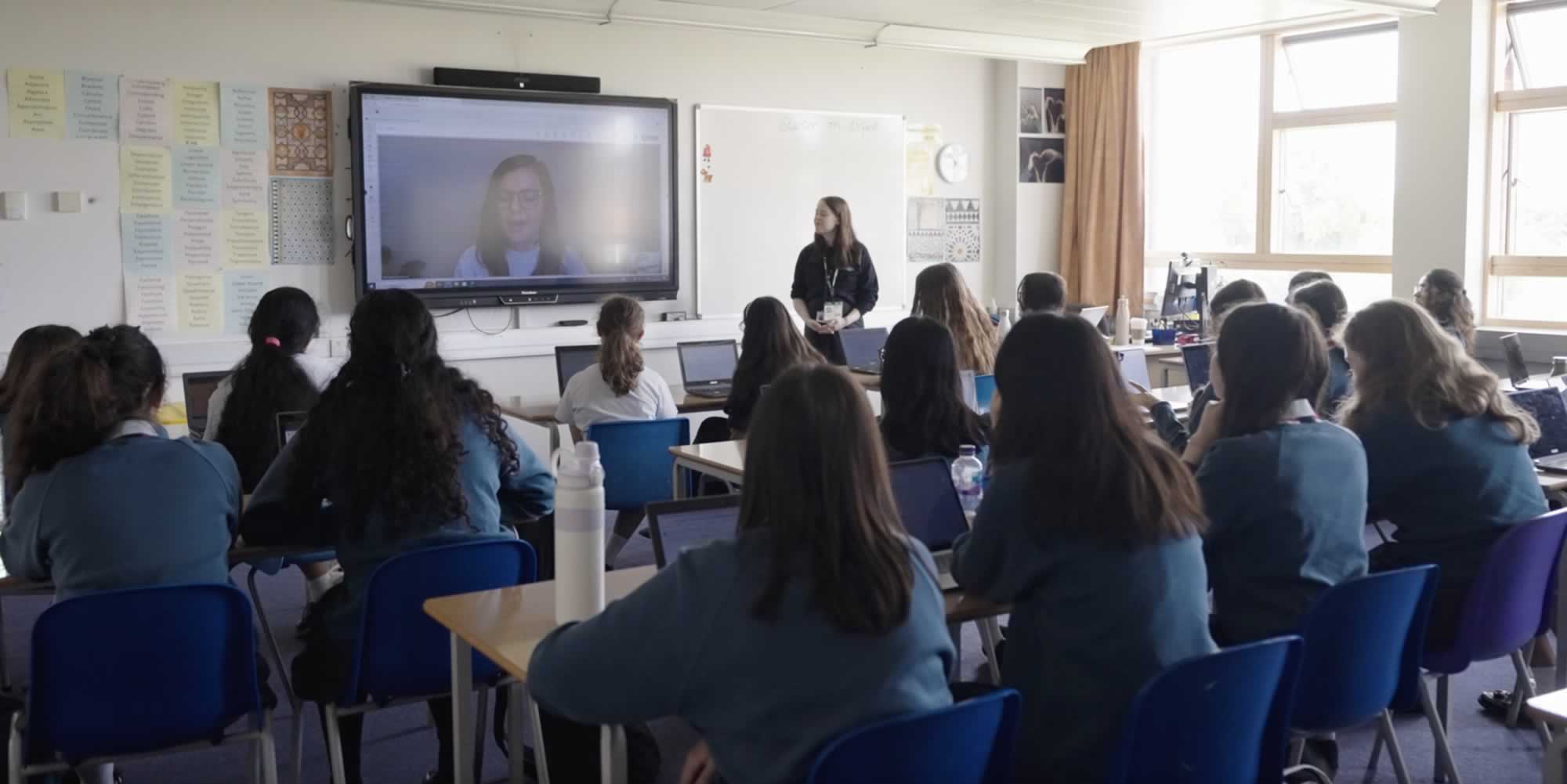“For many years, EdTech has been plagued by a wellmeaning hype cycle, whereby each new technology innovation offers promise and inspiration for teachers and learners. Yet despite huge investments in infrastructure, tools and training, the sector has found it very difficult to identify the impact or codify it at scale. This book tackles that challenge head-on, by summarising the vast body of existing research, setting out what leaders and teachers need to know, and then providing a sequence of activities that walk individual teachers as well as school teams, through what to do next”.
For example, if you are leading conversations around EdTech in school this year, these are the ‘6 key research findings’ that this book recommends focusing on:
WHO’S DRIVING THE EDTECH BUS?: Any decision in a school is ultimately a pedagogical decision because it will affect choices that can be made by teachers and learners. Therefore, any decision about EdTech should be made by those who understand its pedagogical implications and possibilities (not just the technology, security or training implications). As Headteachers and senior leaders you must lead these conversations – drawing in expertise to advise your own thinking – you must lead from the front.
KNOW THY PEDAGOGY: Every teacher and leader needs to understand their individual Pedagogical Beliefs and how these translate into strategic intentions as well as everyday classroom practice. There are many things that influence teacher beliefs – most of which are rarely (if ever) unpacked. Think about your own childhood teachers for a moment – you may not remember the content they taught, but you will probably remember their interpretation of what ‘being the teacher’ felt like. Pedagogy incorporates ideas, systems and structures that are put in place to support learning. This includes teaching but also goes way beyond that to incorporate ideas about where knowledge comes from, what the idea of ‘going to school’ means, and who is part of a learner’s support system. We must all invest time in developing a meaningful understanding of our own pedagogical values and beliefs because these are the single biggest influence on the learners we work with.
DEVELOP AN ON-DEMAND MINDSET: This means that learners need to be able to independently access and meaningfully use a laptop or tablet device as and when they feel it supports them in their learning. This is not about children using screens all day long, or a ‘free for all’, and it is not about a 1:1 device ratio. It is about classroom culture and relationships – removing the barriers that teachers often put in place, and allowing children access to tools and resources that will meaningfully support their learning – at the point of need. Mindset about use matters far more than the number of devices, and it is mindset that results in greater impact.
TRUST CHANGES EVERYTHING: Digital technology changes power relationships in the classroom. This can be intimidating for those in school contexts where there is a lack of trust of learners and/ or teachers. However, digital technology offers the most benefit in a context where learners are taught to be agentive within their own learning. Schools who embrace this find significant improvements to behaviour, attendance, motivation, inclusion, and consequently, progress and attainment – notably closing the gap for learners facing different forms of disadvantage. But it all starts with developing a culture of trust. Sometimes that’s about taking a risk, creating a plan, and having faith in the plan and the people.
MONITOR WHAT YOU VALUE: Leaders often talk about the importance of learners becoming confident, independent, curious and collaborative, yet how often are these meaningfully monitored through robust data analysis? Digital technology can make a profound impact on learning that is not explicitly captured by existing performance measures (e.g. autonomy, dignity, metacognition). These ingredients are the foundations for accelerated progression, sustained outcomes and lifelong trajectories. So be clear about what you really value and then monitor that diligently and robustly. You’ll quickly see what the impact and implications are.
THE EVIDENCE ICEBERG: Evidence and understanding about specific learners’ needs and about effective pedagogical approaches to meet them should be at the heart of all thinking, decision making, and action. We are now in an evidence-informed era in education which can feel overwhelming for many. But we must be more discerning about research headlines and soundbites which are often misleading or heavily biased. Detail is key and understanding how published research findings relate to your own specific and nuanced context really matters. Furthermore, taking a balanced approach to the use of both quantitative (measurable) and qualitative (describable) data – and avoiding an over-reliance on just one form of data. With each of these ideas explored in depth in their book there is a lot to think about. But as Fiona explains, “From EdTech to PedTech was written to provide a practical handbook to support teachers and leaders in making sense of it all and to make some fairly complex research more accessible to practitioners. But we also wanted to provide practical activities to help readers unpack and understand their own practice more meaningfully and ultimately bring clarity and precision to support future improvement. Through our own research, teaching, consulting and advisory work around the world we have seen the transformational and significant impact that pedagogically underpinned uses of digital technology can have. We deeply believe that every child and young person should benefit from these kinds of opportunities and accelerated learning experiences – rather than just the lucky few.”


